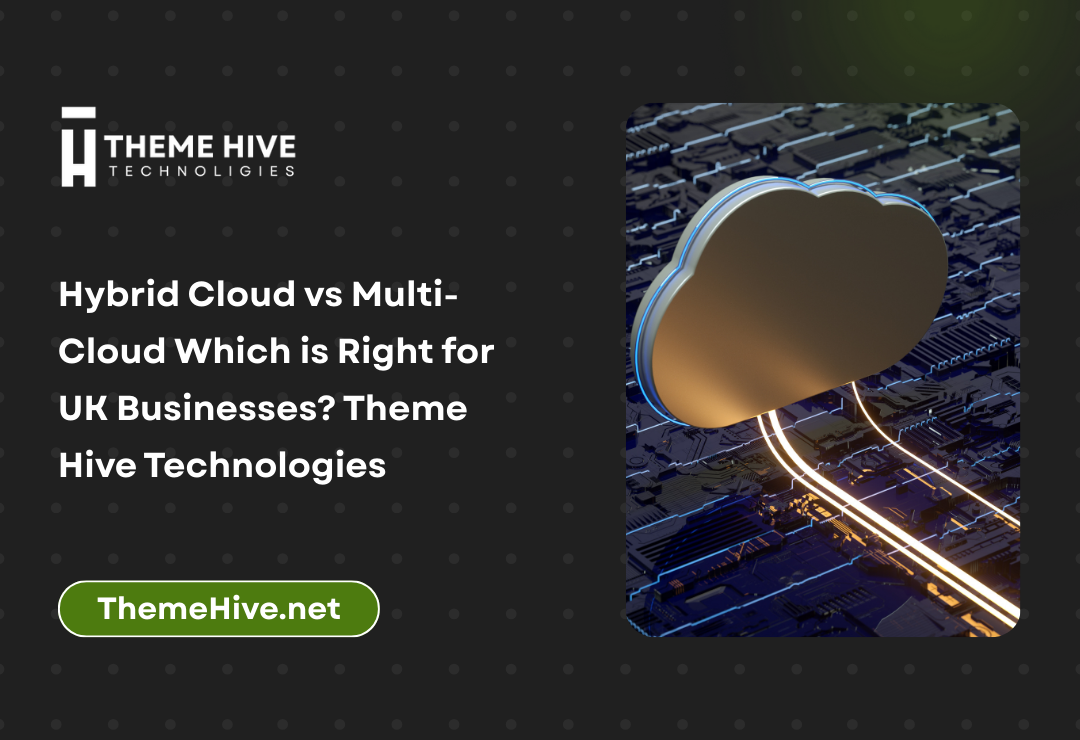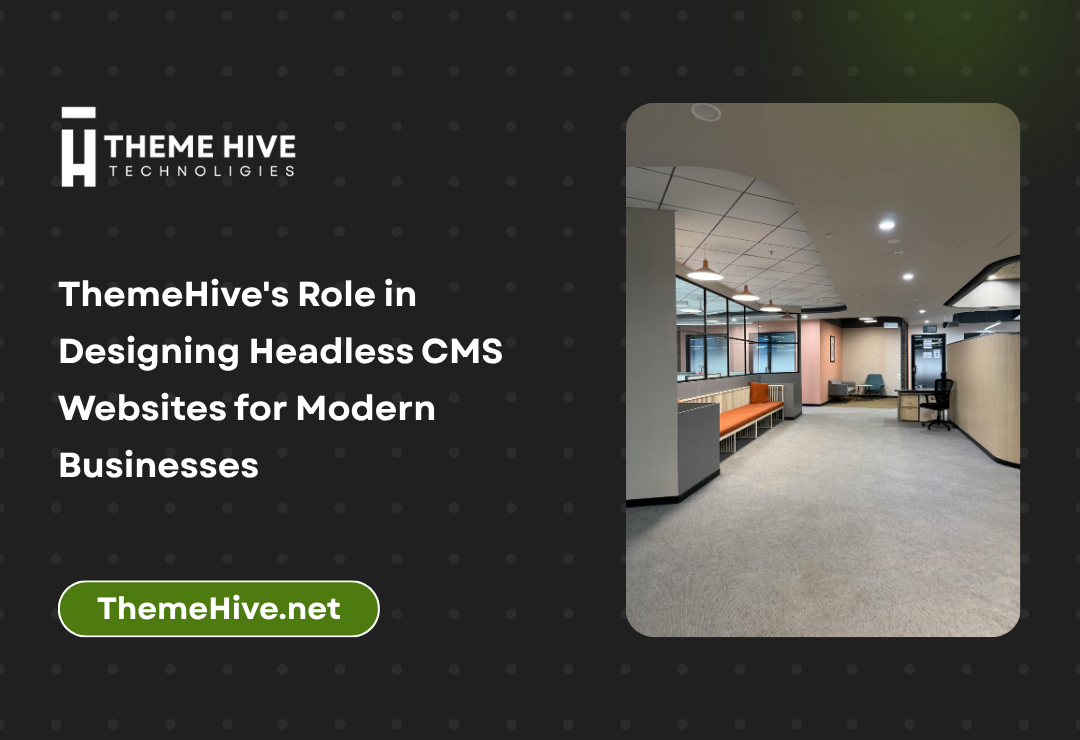In today’s digital-first economy, cloud computing has become a central pillar for business growth, innovation, and cost efficiency. Across industries, enterprises are increasingly turning to cloud platforms to store data, run applications, and scale their operations with agility. Among the most popular strategies for cloud adoption are Hybrid Cloud and Multi-Cloud models. While both approaches offer unique benefits, choosing the right one can be challenging, particularly for UK businesses navigating data regulations, customer demands, and competitive pressures.
This article provides a comprehensive, in-depth comparison of Hybrid Cloud vs Multi-Cloud solutions, helping UK businesses determine which approach best aligns with their goals. We will cover definitions, benefits, challenges, real-world use cases, cost considerations, and future trends. Additionally, we’ll highlight how IT service providers like ThemeHive Technologies and Theme Hive Technologies can support organizations in making the right cloud strategy decisions.
What is Hybrid Cloud?
A Hybrid Cloud combines on-premises infrastructure (private cloud) with public cloud services. It enables businesses to move workloads between the two environments seamlessly, depending on performance, security, and cost requirements.
Key Characteristics of Hybrid Cloud:
- Flexibility: Workloads can shift between private and public clouds.
- Cost Management: Sensitive or high-priority workloads remain in private infrastructure, while scalable operations leverage public cloud resources.
- Security Control: Businesses can keep critical data in-house while using the cloud for less sensitive tasks.
Hybrid Cloud is particularly attractive for businesses that need to balance compliance and agility.
What is Multi-Cloud?
Multi-Cloud refers to the use of two or more public cloud providers (e.g., AWS, Microsoft Azure, Google Cloud) simultaneously. Instead of relying on a single vendor, businesses distribute workloads across multiple platforms.
Key Characteristics of Multi-Cloud:
- Vendor Independence: No reliance on a single cloud provider.
- Best-of-Breed Services: Companies can pick specialized services from different vendors.
- Resilience and Redundancy: Spreading workloads across multiple providers minimizes downtime risk.
Multi-Cloud is often the preferred choice for enterprises seeking to avoid vendor lock-in and optimize performance across regions.
Hybrid Cloud vs Multi-Cloud: Core Differences
| Feature | Hybrid Cloud | Multi-Cloud |
|---|---|---|
| Infrastructure | Mix of private & public | Multiple public providers |
| Data Control | Greater control (private cloud) | Shared across vendors |
| Vendor Dependence | May rely on one public provider | Reduced vendor lock-in |
| Security | Stronger for sensitive data | Varies by provider |
| Use Case | Compliance-heavy industries | Global, scalable operations |
| Cost | Balances on-prem & cloud | Can be higher due to complexity |
Benefits of Hybrid Cloud for UK Businesses
- Regulatory Compliance: UK businesses in finance, healthcare, or government sectors benefit from keeping sensitive data on-premises.
- Business Continuity: Hybrid setups enable rapid recovery with cloud-based backups.
- Scalability: Public cloud resources can handle traffic spikes while critical data stays secure.
- Cost Efficiency: Long-term infrastructure costs are reduced by mixing cloud and on-premises resources.
Benefits of Multi-Cloud for UK Businesses
- Avoiding Vendor Lock-In: Reduces dependence on a single provider, giving businesses flexibility.
- Optimized Performance: Companies can deploy services in regions closer to customers.
- Best Tools Access: Organizations can select specific tools from providers that best suit each workload.
- Risk Mitigation: If one provider experiences downtime, workloads can continue on another.
Cost Considerations
Hybrid Cloud:
- Lower upfront investment for public cloud resources.
- Costs for maintaining private infrastructure.
- Long-term savings by optimizing workload placement.
Multi-Cloud:
- Higher operational costs due to managing multiple providers.
- Greater redundancy may prevent costly downtime.
- Potential hidden costs in integration and monitoring.
Security Implications
Hybrid Cloud Security:
- Stronger control for sensitive data stored on-premises.
- Compliance with strict UK and EU regulations (GDPR).
- Challenges in maintaining consistent security policies across environments.
Multi-Cloud Security:
- Broader exposure across vendors.
- Requires advanced monitoring and security integration tools.
- Resilience improves overall security posture.
Real-World Use Cases
Hybrid Cloud Use Cases:
- Financial Services: Protecting sensitive customer data in private environments while using public cloud for analytics.
- Healthcare: Storing patient data securely while enabling AI-driven diagnostics on the public cloud.
- Retail: Using private cloud for customer data, while public cloud handles seasonal traffic spikes.
Multi-Cloud Use Cases:
- E-commerce: Distributing workloads across providers to improve global delivery.
- Media and Entertainment: Leveraging cloud services for video streaming, ensuring redundancy.
- Technology Startups: Using different platforms for app development, testing, and deployment.
Challenges of Hybrid Cloud
- Complex Management: Balancing workloads between environments can be resource-intensive.
- Integration Issues: Compatibility between private and public clouds may be limited.
- Cost Overheads: Maintaining private infrastructure remains expensive.
Challenges of Multi-Cloud
- Operational Complexity: Managing multiple providers requires advanced skills.
- Inconsistent Policies: Different providers have varying compliance and security policies.
- Cost Management: Without careful monitoring, costs can escalate.
How UK Businesses Can Decide
Choose Hybrid Cloud if:
- You operate in a regulated industry (finance, healthcare, government).
- You need data control for sensitive operations.
- You want a balance between agility and compliance.
Choose Multi-Cloud if:
- You want to avoid vendor lock-in.
- You require global reach and high availability.
- You rely on specialized tools from multiple providers.
The Role of ThemeHive Technologies
ThemeHive Technologies and Theme Hive Technologies provide expert guidance for businesses navigating cloud adoption. Their services include:
- Cloud strategy consulting
- Hybrid and multi-cloud architecture design
- Cloud security and compliance management
- Cost optimization strategies
By partnering with these providers, UK businesses can make informed decisions and implement the most effective cloud model for growth.
Hybrid Cloud vs Multi-Cloud
Future Trends in Cloud Adoption for UK Enterprises
- Hybrid-First Models: Many enterprises will adopt hybrid approaches to comply with evolving regulations.
- Increased Multi-Cloud Adoption: As cloud tools diversify, businesses will adopt multi-cloud for competitive advantage.
- AI-Driven Cloud Management: Automation will simplify cloud monitoring and reduce operational costs.
- Focus on Security: Zero Trust models and integrated cloud security will become standard.
Conclusion
The decision between Hybrid Cloud vs Multi-Cloud ultimately depends on each business’s goals, compliance needs, and growth strategies. For UK businesses, hybrid models offer stronger control and compliance, while multi-cloud ensures flexibility and resilience. With the support of ThemeHive Technologies and Theme Hive Technologies, companies can embrace a cloud strategy that balances cost efficiency, security, and innovation.
Internal Links
Outbound Links
- Gartner – Cloud Computing Insights
- Forrester – Hybrid and Multi-Cloud Trends
- IBM – Multi-Cloud Strategy
Hybrid Cloud vs Multi-Cloud







